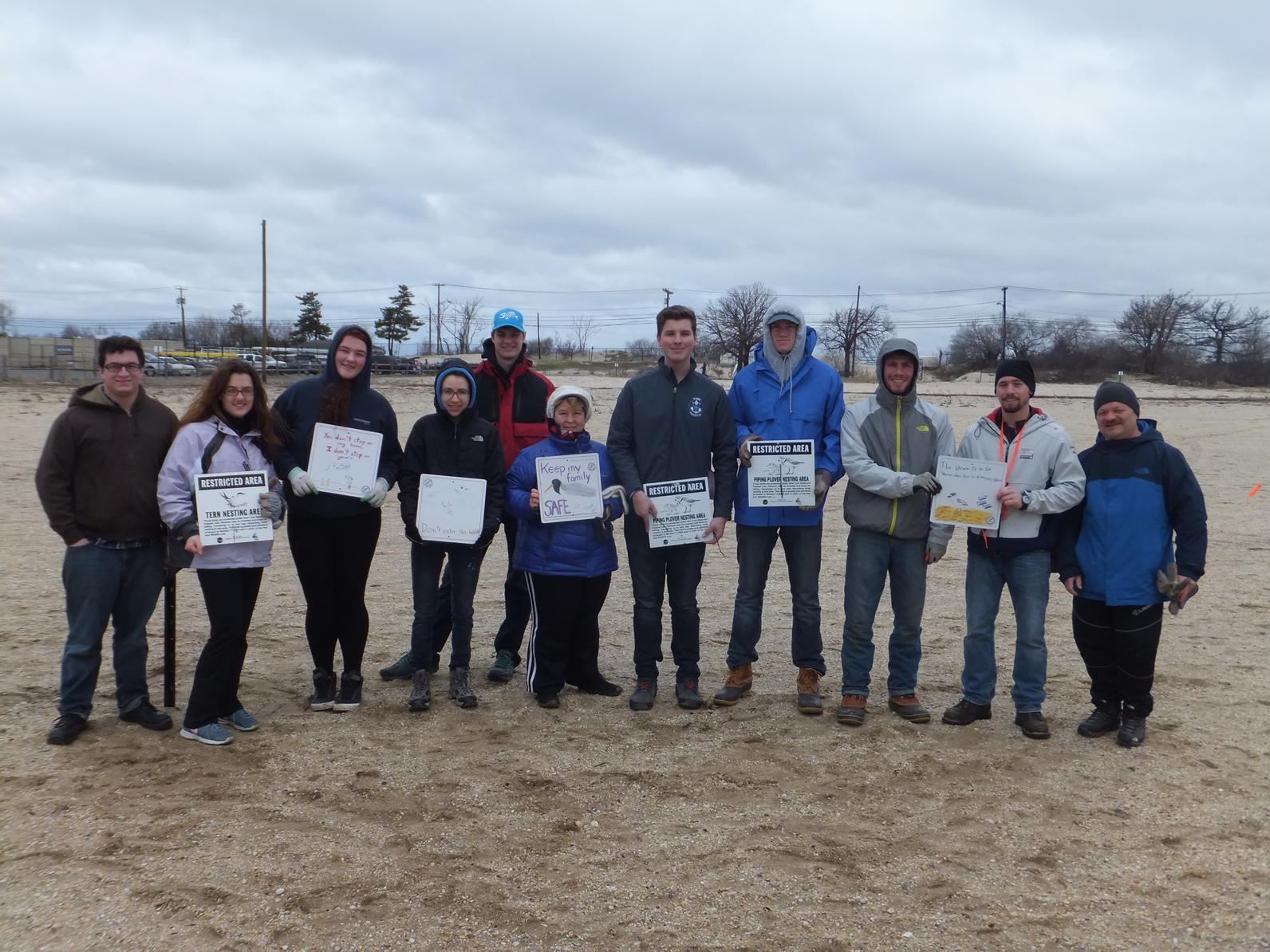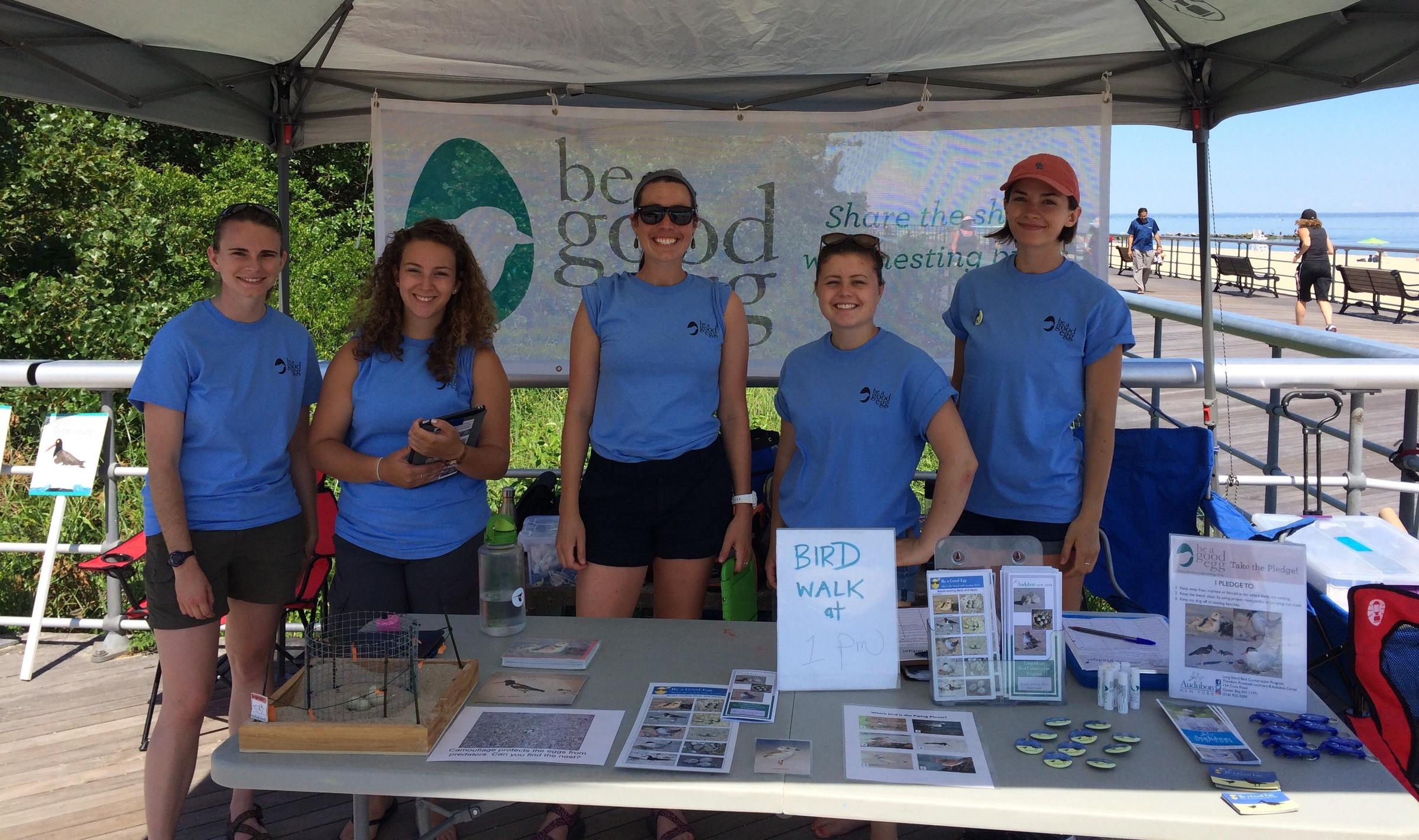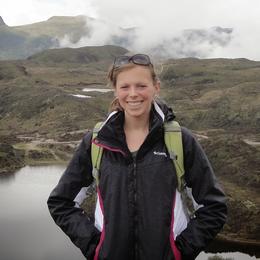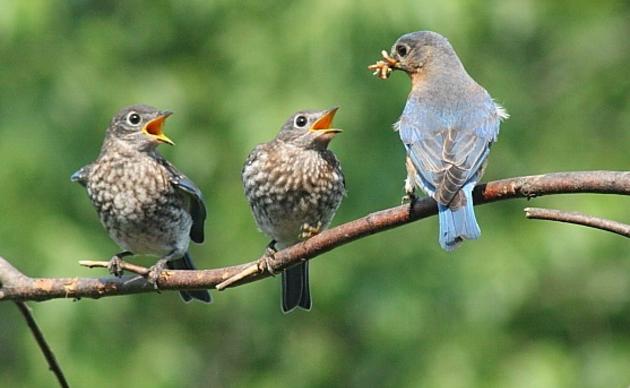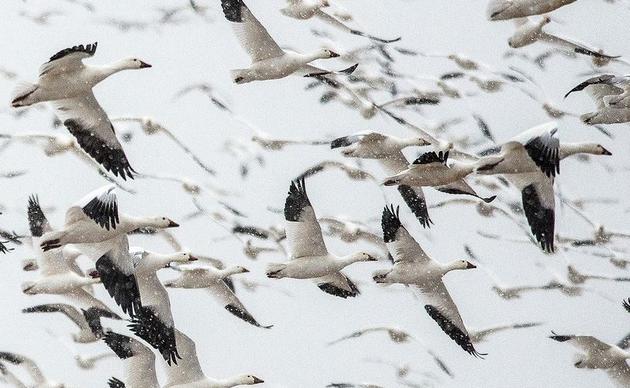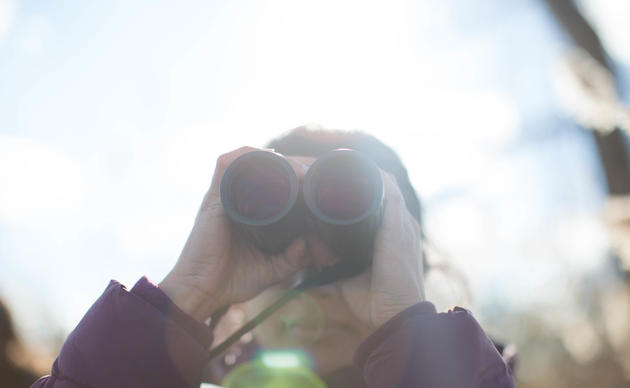“Be a Good Egg” is an outreach initiative that strives to reduce human disturbance threats to beach-nesting and migratory shorebirds. In 2017, we took on new outreach sites, taught and engaged local elementary school students in conservation, and conducted a study to evaluate the effectiveness of our on-the-beach outreach events.
In partnership with the Four Harbors, Huntington Oyster Bay, and North Shore Audubon societies, we hosted nine “Be a Good Egg” (BGE) outreach events on weekends in June and July, during which we tabled at the entrances of five priority Long Island Sound beaches. We provided visitors with pamphlets and brochures about beach-nesting bird biology, Long Island Sound messaging, and information on how to reduce disturbances to birds. Then, we asked visitors to sign the BGE pledge to stay out of fenced-off nesting areas, keep trash off the beach, and not bring dogs to nesting beaches. With the help of 35 wonderful volunteers, this year we successfully encouraged 1,487 Long Island Sound beach-goers to sign the pledge!
We also continued to work with local elementary schools to create beach-nesting bird signs using children’s artwork. 251 fourth grade students participated in a shorebird lesson and then submitted “share the shore” designs for our sign design contest. We selected a subset of the students’ designs and created 20 weather-resistant signs that were installed at Sunken Meadow State Park to alert beach-goers of nesting areas and encourage people to avoid disturbing the birds.
Lastly, we partnered with Virginia Tech University to evaluate our on-the-beach outreach events. Along with Professor Ashley Dayer, a graduate student, and a technician, we administered a pre-survey to beach-goers immediately after they received messaging from our staff and volunteers but before they signed the pledge at one of our outreach events. Later, beach-goers whom agreed to participate in a follow up survey were asked to answer additional questions via email. These responses will be compared to pre- and post-survey results from control groups of beach-goers whom did not interact with our outreach program. We will use the results of this study to inform our outreach work in 2018.
The National Fish and Wildlife Foundation’s Long Island Sound Futures Fund supports this work. Thank you!
